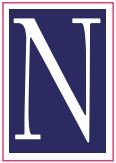The Work of the Archivist
Being surrounded by fascinating and varied historic documents is a daily perk for the archivists at Northumberland Archives, and one that is never taken for granted. But ensuring that this history – of the county and its people – survives and is available to researchers requires a not insignificant amount of work. This work can broadly be separated into two main categories: preservation and access.
The importance of preservation for archives is obvious; without appropriate care, important documents will not survive. But preservation involves more than simply making sure material is safely in a box. In fact, it really begins even before the material has found its way to the archive when we begin talking to donors about the acquisition of records.
We first need to make sure material fits with our collecting policy; that it is of historical significance and pertains to the history of Northumberland. Once we have arranged the logistics of acquiring material and formally acknowledged our taking custody of it (called ‘accessioning’) we carry out an initial review of the records, paying significant attention to their physical condition. We undertake small conservation jobs ourselves, for example replacing rusty paper clips with brass equivalents and rehousing documents in acid-free, archival standard enclosures. This type of storage ensures that degradation of material is kept to a minimum. If the documents are particularly damaged or at risk, we may employ the services of a specialist conservator who can offer treatment or advice. Documents are then stored in one of our seven strong rooms where the temperature and relative humidity are monitored to ensure we are providing optimal storage conditions.
As satisfying as it may be to safely tuck well preserved archives away in secure rooms, what good is the material that tells of Northumberland’s rich history if no one can find or consult it? As with preservation, facilitating access to archive material is an involved but equally rewarding task. Archivists need to make sure we have a good intellectual control of our collections, or to put it another way, to ‘know what we’ve got’. We try to accurately catalogue material; capturing the pertinent information about each series, file or item, and then presenting this in a clear and understandable format to anyone who consults our catalogues. To maximize discoverability for users, we aim to highlight important names, places and dates and provide appropriate background information from the record’s creators. Our online catalogue opens up our collections to the world and can also carry images of many of our items to aid customers in their research.
Managing standard archive collections can have its challenges but it is important to point out the ever-increasing world of digital archives can provide even more daunting issues. Ensuring digital records, photographs, emails with attachments and links, or any of the other plethora of potential electronic archive formats are preserved and accessible for the long term is no easy task. Northumberland Archives have undertaken a great deal of work in this emerging field of collections care, but there is a great deal still to do.
Aside from the significant commitment of time that the management of collections demands, there are numerous other tasks that might fill an archivist’s day. We love engaging with various communities by delivering talks and study sessions to a wide variety of audiences, from school children to local history societies, from academics to special interest groups. We write articles and blogs for the archive’s website and social media channels, which is a vital way to communicate with our users and the wider archive’s sector. And then overseeing the Search Room, dealing with publication requests, collecting statistics, answering email enquiries and more, leaves us with working days that are rarely quiet. Variation is therefore an apt word; not just to describe the rich collections held at Northumberland Archives, but also for the many interesting tasks that archivists undertake to care for them.
Chris Loftus
NCC Archivist
